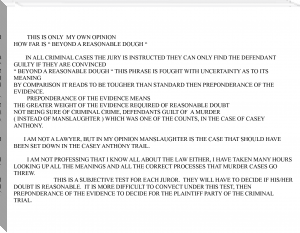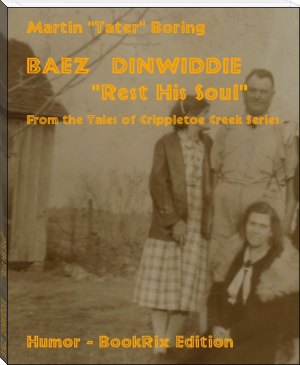All Aboard; or, Life on the Lake<br />A Sequel to "The Boat Club" by Oliver Optic (ebook reader ink .txt) 📗

- Author: Oliver Optic
Book online «All Aboard; or, Life on the Lake<br />A Sequel to "The Boat Club" by Oliver Optic (ebook reader ink .txt) 📗». Author Oliver Optic
"Won't you tell me, Tim?" asked he, in reply to Tim's remark.
"Not now, Charley; one of these days you shall know all about it."
"I am afraid we shall both get turned out of the club."
"No we shan't; if we do—— But no matter.'
"What would you do, Tim?"
"Never mind now, Charley. I have a plan in my head. Captain Sedley told me the other day if I didn't behave better I should be turned out."
"Then you will be."
"I don't care if I am. If they turn me out, they will make a mistake; that's all."
There was something mysterious in the words of the Bunker which excited the curiosity of Charles. He could not help wondering what he would do. Tim had so much resolution he was sure it was not an idle boast.
"I know what I am about," continued Tim, with a wise look.
"Captain Sedley says you still associate with your old companions," added Charles.
"What if I do?"
"That would be ground enough for turning you out."
"Would it? They are better fellows than you long faces, and you will say so when you know them," replied Tim, speaking as though it were a settled fact that he would know them by and by.
This conversation occurred one Wednesday afternoon, as the two boys were on their way to the boat-house. On their arrival, Tim was informed by Captain Sedley, who was apparently there for that purpose, that he was expelled from the club. It was sudden and unexpected, and had been done by the director without any action on the part of the club.
"What for?" asked Tim, in surly tones.
"I find that you still associate with your old companions, which is sufficient proof that you don't mean to reform," answered the director.
"I don't care," growled Tim, as he turned on his heel and walked out of the hall.
Charles Hardy was then called aside by Captain Sedley, who kindly pointed out to him the danger he incurred in associating with such a boy as Tim.
"I would not have kept company with him if he had not been a member of the club," replied Charles.
"He was admitted to the club on the supposition that he intended to be a better boy."
"I was opposed to admitting him," answered Charles, rather sulkily.
"I was very willing the boy should have a fair chance to reform; but when it became apparent that he did not mean to do better, I could no longer permit him to endanger the moral welfare of the club. We have been satisfied for some time; and most of the boys, after giving him a fair trial, avoided him as much as possible when they saw what he meant. But you have been growing more and more intimate with him every day. Why, it was only last night that he was seen with some twenty or thirty of his old companions. They seemed to be in consultation about something. Perhaps you were with them."
"No, sir; I was not."
"I am glad you were not. I caution you to avoid them."
"I will, sir," replied Charles, meekly; and he meant what he said.
"I am glad to hear you say so: I was afraid you had known too much of
Tim Bunker," said the director, as he walked towards his house.
Charles entered the hall, and took his seat.
"Those in favor of admitting Samuel Preston to the club will signify it," said William, as soon as he was in his place.
Eleven hands were raised, and the new member, who stood by the window waiting the result, was declared to be admitted. The constitution was then read to him, and he signed it; after which the club embarked for an excursion up to the strait, where they had agreed to meet the Butterfly.
The particular object of this visit was to erect a lighthouse on Curtis Island, a small, rocky place, separated from the main shore by "Calrow Strait," which the readers of "The Boat Club" will remember. The navigation of this portion of the lake was considered very difficult, especially through the narrow passage, and it was thought to be absolutely necessary to have a lighthouse, mauger the fact that the boats always sailed by day. But as neither craft was insured, it was necessary to use extraordinary precautions!
A working party of half a dozen was detailed from each boat, consisting of the stoutest boys, who were landed upon the island. Materials were immediately gathered and the foundation laid. The structure was to be a simple round tower, as high as the patience of the workmen would permit them to build it.
In a short time all the rocks on the island had been used up, and the lighthouse was only two feet high; but this contingency had been anticipated, and provisions made for supplying more stone. A large rock was attached to the long painter of the Butterfly, and she was moored at a safe distance from the island, while her remaining crew were transferred to the Zephyr.
A rude raft, which had been provided by Tony, was towed to the shore, where an abundance of rocks were to be had. It was their intention to load it with "lighthouse material," and tow it to the island. It required all their skill to accomplish this object, for the raft was a most ungainly thing to manage. The Zephyr was so long that they could not row round so as to bring the raft alongside the bank, and when they attempted to push it in, the paint, and even the planks of the boat, were endangered.
"Can't get it in—can we?" said Charles Hardy, after several unsuccessful attempts.
"There is no such word as fail," replied William. "Bring me the long painter."
The coxswain unfastened the tow line of the raft, and tied the painter to it.
"Bowman, stand by with the boat-hook, ready to land."
"Ay, ay!"
"Now, pull steady; be careful she does not grind on the rocks; easy, there. Four of you jump ashore."
The four forward rowers obeyed the command.
"Now pass this line ashore, and let them pull in on the raft," continued
William.
"Hurrah! there she is!" shouted Frank. "That was done handsomely!"
"We could have done it before, if we had only thought of it," replied William, laughing. "Now put out the fenders, and haul the boat alongside the raft."
Four more of the boys were sent on shore to help roll down the rocks, and two were ordered upon the raft to place them. A great deal of hard work was done in a very short time; but, as it was play, no one minded it, as probably some of them would if the labor had been for any useful purpose. In due time the raft was loaded with all it would carry, and the boys were ordered into the boat again.
The raft proved to be a very obstinate sailer. After a deal of hard tugging at the oars, they succeeded in getting it under a tolerable headway; but the tow line was not properly attached, and it "heeled over" so as to be in danger of "spilling" its load into the lake. Prudence and good management, however, on the part of the coxswain, conveyed it in safety to the island, and its freight soon became "part and parcel" of the lighthouse.
Two or three loads more were brought, after the lesson of experience obtained in getting the first, with but comparatively little difficulty; and at six o'clock the tower received its capstone at a height of six feet from the ground, and twelve from the water.
The lighthouse was then inaugurated by a volley of cheers. A hollow pumpkin of last year's growth, containing a lighted candle, was placed upon the apex; and then the boats departed for home. At eight o'clock, when the darkness had gathered upon the lake, they saw the light from their homes, and had the satisfaction of knowing that the light-keeper was watchful of the safety of vessels in those waters.
As Charles Hardy passed through the grove on his way home, after the club separated, he met Tim Bunker, who was apparently awaiting his coming.
CHAPTER XIV. THE CONSPIRACY."Well, Charley, my pipe is out," said Tim Bunker, as he joined his late associate in the club.
"It was rather sudden," replied Charles, disconcerted by the meeting, for he had actually made up his mind to keep out of Tim's way. "I didn't expect any such thing."
"I did; I knew old Sedley meant to get rid of me."
Tim always knew everything after it was done. He was a very profound prophet, but he had sense enough to keep his predictions to himself.
"You did not say so," added Charles, who gave the Bunker credit for all the sagacity he claimed.
"It was no use; it would only have frightened you, and you are chickenish enough without any help. But no matter, Charley; for my part, I am glad he turned me out. He only saved me the trouble of getting out myself."
"Did you really mean to leave?"
"To be sure I did."
"What for?"
"Because I didn't like the company, to say nothing of being nosed round by Frank Sedley, Bill Bright, or whoever happened to be coxswain. If you had been coxswain, Charley, I wouldn't minded it," replied Tim, adroitly.
"But I wouldn't nose the fellows round," replied Charles, tickled with
Tim's compliment.
"I know you wouldn't; but they wouldn't make you the coxswain. They hate you too much for that."
"It is strange they haven't elected me," said Charles, musing.
"That's a fact! You know more about a boat than three quarters of them."
"I ought to."
"And you do."
Charles had by this time forgotten the promise he had made to Captain
Sedley—forgotten the good resolution he had made to himself. Tim's
flattery had produced its desired effect, and all the ground which the
Bunker had lost was now regained.
"I am sorry they turned you out, Tim," said he.
"I am glad of it. They will turn you out next, Charley."
"Me!"
"Yes."
"Why should they?"
"Because they don't like you."
"They wouldn't do that."
"Don't you believe it," replied Tim, shaking his head, and putting on a very wise look. "I'll bet they'll turn you out in less than a month."
"Do you know anything about it?"
"Not much."
They had now reached the end of the grove, and Tim suggested that they should take seats and "talk over matters." Charles readily assented, and they seated themselves by the margin of the lake.
"What do you know, Tim?" asked Charles, his curiosity very much excited.
"I only know that they don't like you, and they mean to turn you out."
"I don't believe it."
"Do you mean to tell me I lie?"
"No, no; only I can't think they would turn me out."
"I heard Frank say as much," replied Tim, indifferently.
"Did you."
"To be sure I did."
Charles stopped to think how mean it was of Frank to try to get him out of the club; how hypocritical he was, to treat him as a friend when he meant to injure him. It did not occur to him that Tim had told a falsehood, though it was generally believed that he had as lief tell a lie as the truth.
"You are a fool if you let them kick you out, as they did me," continued
Tim.
"What can I do?"
"Leave yourself."
"Next week is vacation; and we have laid out some first-rate fun."
"There will be no fun, let me tell you."
"What do you mean, Tim?"
"If you want to be the coxswain of a boat as good as the Zephyr next week, only say the word," replied Tim, slapping him on the back.
"How can that be?" asked Charles, looking with surprise at his companion.
"And you shall have as good a crew as the





Comments (0)